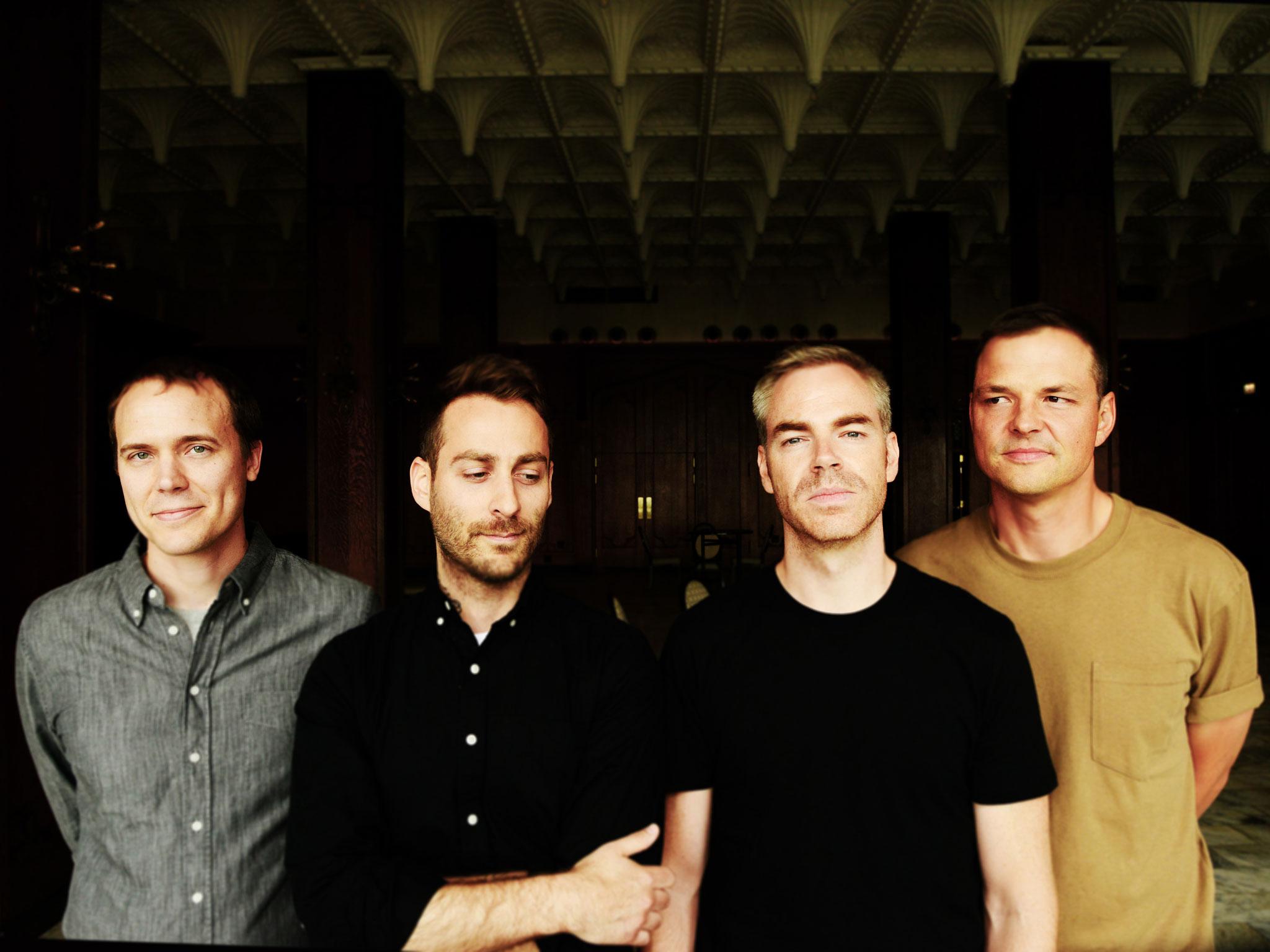American Football, Shepherd's Bush Empire, gig review: Emo all grown up
The quiet heroes of emo play through new and old in west London

For American Football, this all happened without them really realising. In the late Nineties, three college friends – drummer Steve Lamos, guitarist Steve Holmes and vocalist/guitarist Mike Kinsella – came together in Illinois to write an EP and a self-titled album. Both went largely unnoticed, as did the handful of gigs they played live. College ended, American Football disbanded.
Their fleeting lifespan came years after the genre of emo had been cultivated, and before it underwent that existential crisis in the Noughties. Bands like Rites of Spring and Sunny Day Real Estate established this style of blood-and-tears alternative rock, defined by driving melody with a hardcore edge and achingly confessional lyrics. But what American Football did was different. It was catharsis without the extremity, potency without the decibels. A way of doing emo differently had been set out.
The members went away, grew up, made families. Lamos and Holmes got jobs outside of music, while Kinsella forged a solo music career. All the while, that debut album was growing into a quiet classic, almost without the members themselves knowing. When they reformed in 2014, they were surprised anyone even cared, let alone the thousands of people who came out to shows from Spain to Japan.
Tonight, in front of 2,000 in west London, the band's post-reformation album, LP2 is played in its entirety, before an extended pick of the early releases. And it works perfectly. These are two distinct bodies of music. Kinsella's lyrics have grown up, and instead of singing about fading summer romances, now it's about the aches of adulthood, and the voice delivering them tonight is no longer near-whispered and adolescent, but world weary and considered.
But they are in many ways the same. Drummer Lamos still plays in that oxymoronic way, assuredly definite but still somehow sounding jazzily improvisational, like on “I Need a Drink (or Two or Three)” off LP2, where the beat purposely stumbles and regains its composure. There’s still that channelling of Steve Reich through the interlocking guitars in peculiar timings and tunings. Kinsella and Holmes’s expert playing is patient and restrained throughout (apart from on “Desire Gets In The Way” where Kinsella puts vibrato on the end of a seconds-long guitar solo. He swiftly apologises.) But it’s all the more evocative for it. On “Desire...”, the best song off LP2, the angular guitars are waves crashing into each other, before calming so that the band can sail off into an twinkling outro. It's unmistakably American Football.
Moving into the older songs, “Stay Home” feels like a centrepiece, again recalling Reich, building repetitively and finally giving way. “Honestly”, possibly the closest American Football get to danceable, has a new scale and depth to it. The song morphs as Lamos’s guitar swings freely and Kinsella’s playing stretches and yearns, while Lamos is a man unleashed.
And then there’s “Never Meant”. It’s the closest thing emo has to a sing-along super-hit, and it’s received like one. Holmes’s repeated, escalating guitar line is instantly recognisable, and with Kinsella crooning about that “autumn night when we realised we were falling out of love”, the crowd sings it back like they were right there with him. It sums up what’s so often misunderstood about emo – yes, this music of loss and pain, but it's cathartic rather than hopeless. American Football might not have been aware how important they had become, but tonight leaves no doubt.
Join our commenting forum
Join thought-provoking conversations, follow other Independent readers and see their replies
Comments
Bookmark popover
Removed from bookmarks